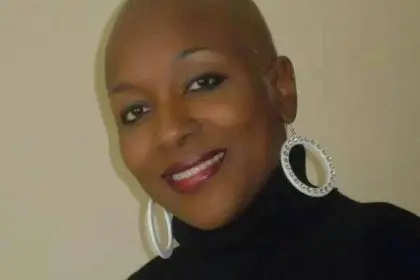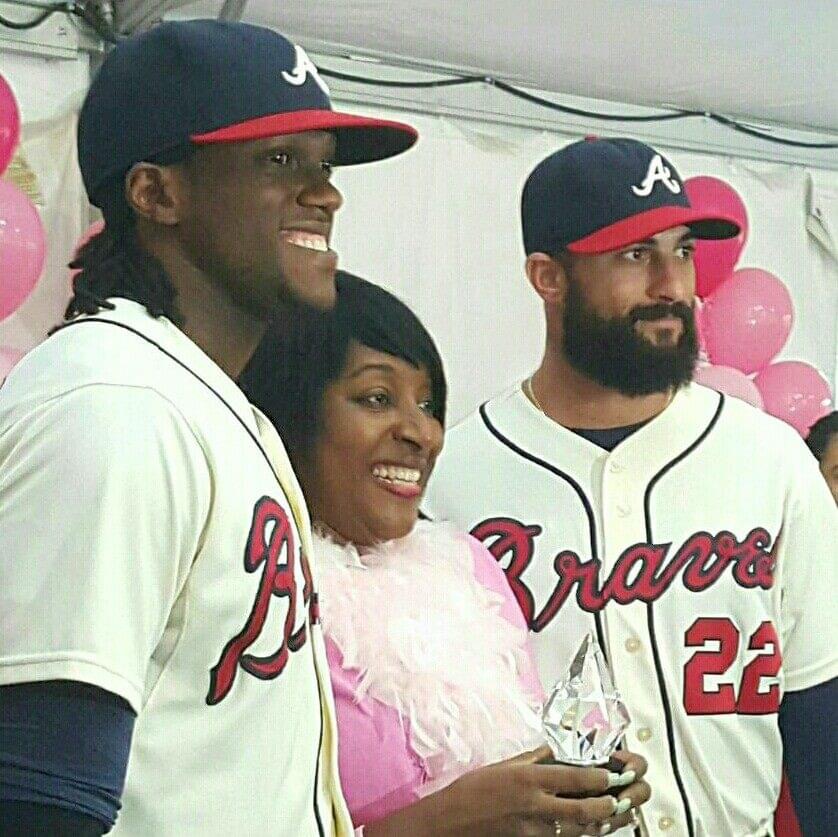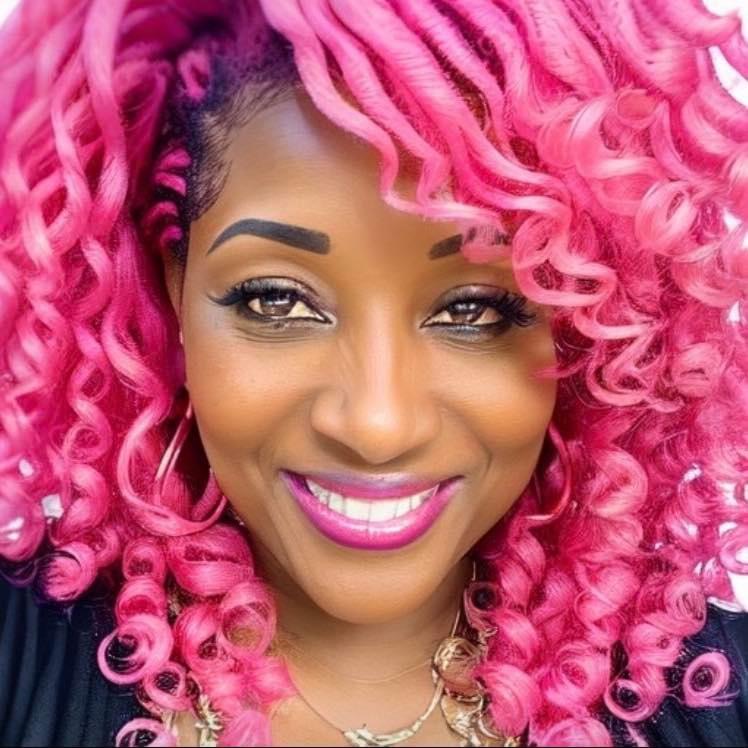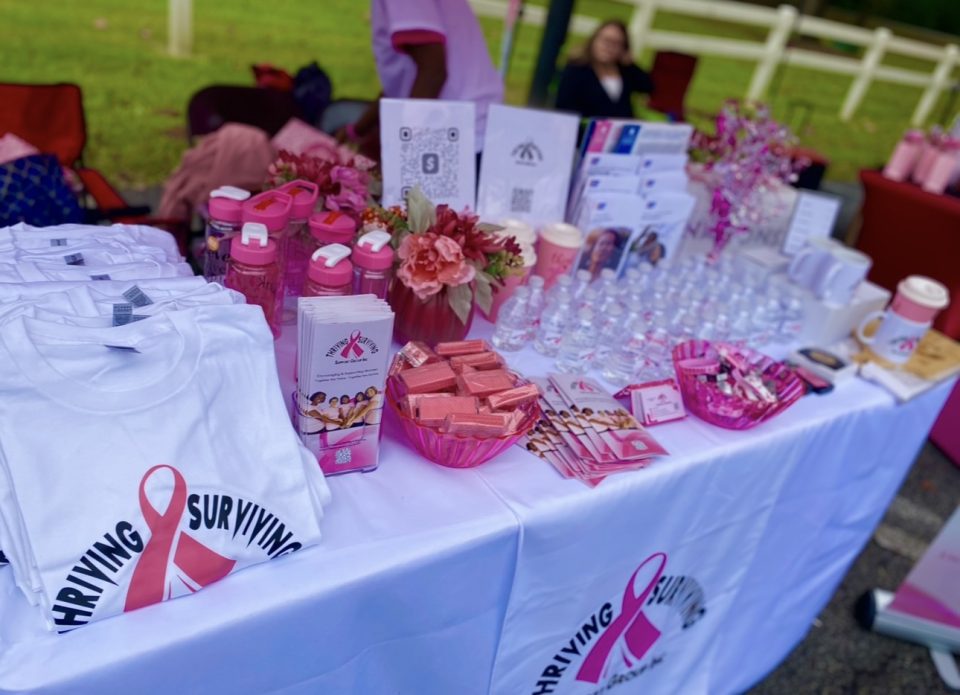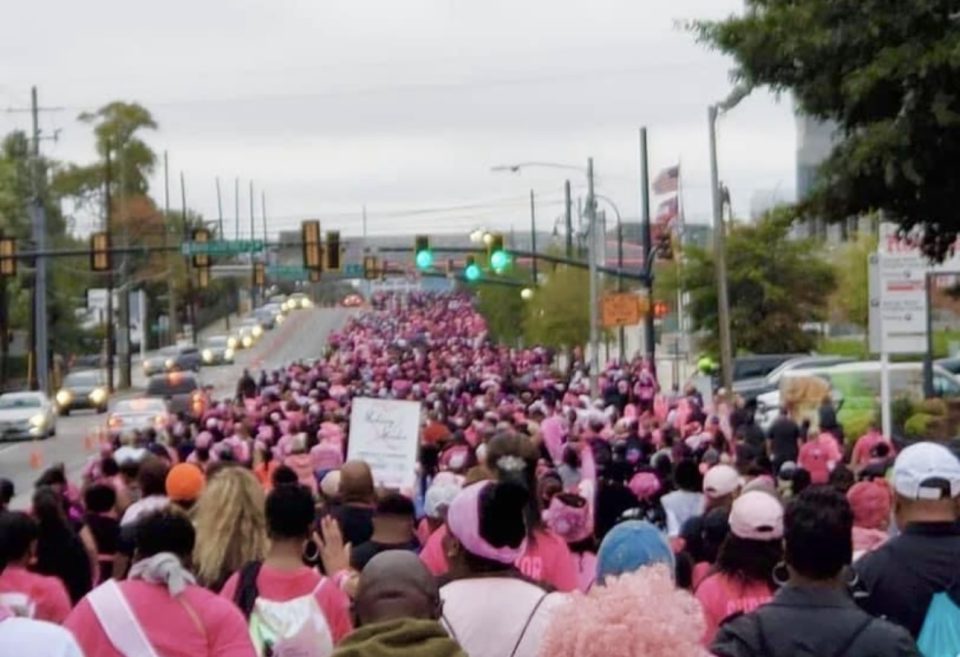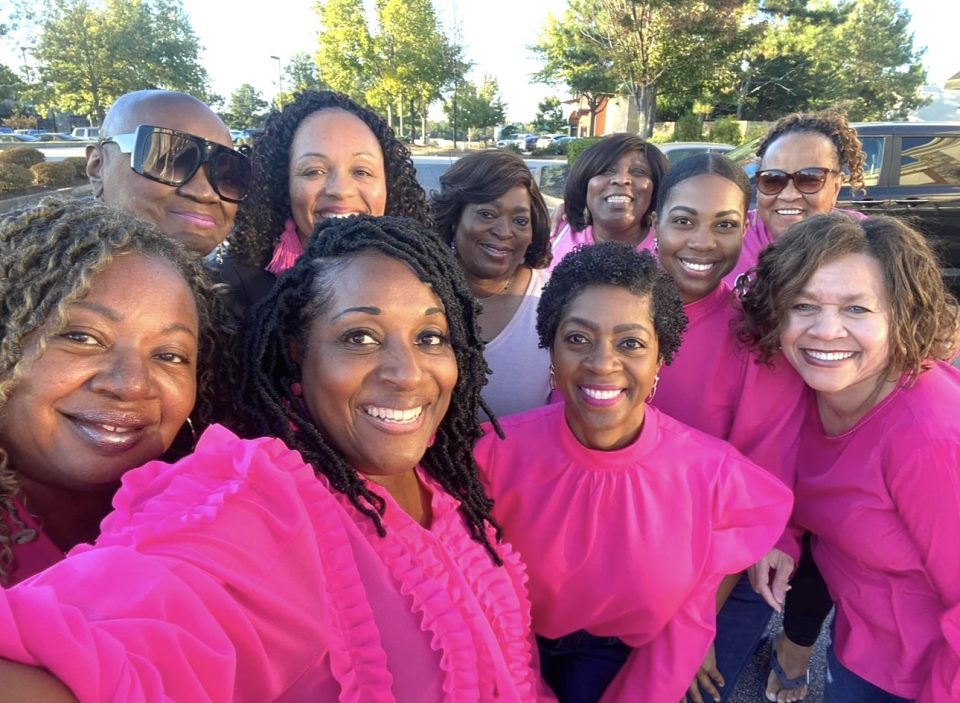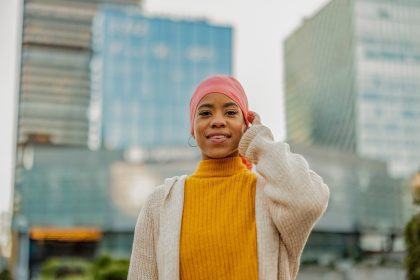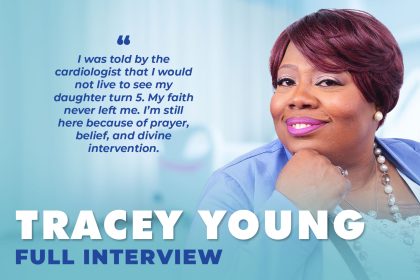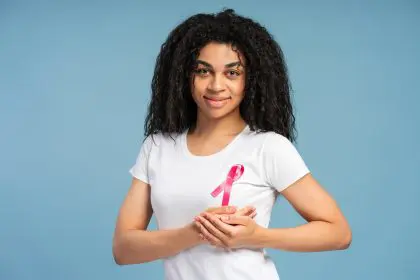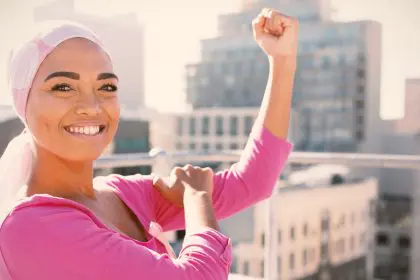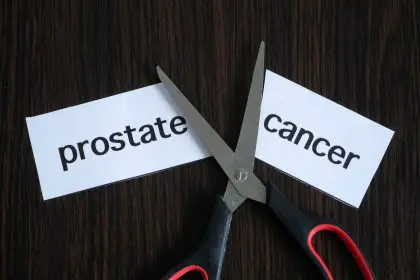Rhonda Williams is a United States Air Force veteran, wife, mother, grandmother, and breast cancer survivor who has turned her personal struggle into a beacon of hope for others. As the CEO and Founder of Thriving and Surviving Breast Cancer Support Group Inc., a 501(c)(3) nonprofit organization, Williams has dedicated her life to ensuring no one faces cancer alone. Her journey began in 2011 when she was diagnosed with Stage 3, HER2-positive breast cancer. Today, 13 years cancer-free, Williams continues to inspire and support hundreds of breast cancer patients and survivors worldwide.
[Editor’s note: This is a truncated transcribe of a longer video interview. Please see the video for the extended version. Some errors may occur.]
Can you share your experience with breast cancer?
Yes, absolutely. I am definitely blessed and highly favored. My journey began 13 years ago, on August 11, 2011, when I found a lump under my arm. Later on, I found out that it was cancer that had spread to my lymph node. After that, it was a traumatic experience that I did not know if I could get over. But with the help of God, my faith, and believing that God would bring me through it… After six aggressive rounds of chemo, one year of preventive chemo, a hysterectomy, a double mastectomy, and just prayer—prayer—I tried to pray my way through it. But halfway through it, I decided, I woke up one day and said, “I will no longer be fearful. I will be victorious in this.” When I made that decision to be victorious, that’s when God stepped in.
I remember the day I went to the doctor’s office after my chemo treatments. He said they saw the tumor marker floating, but there was no tumor around it. At that point, because I knew the fear I had gone through when I went through mine, I said, “I do not want anybody else to experience the fearfulness that I had to go through.” I made sure that nobody had to go through that journey alone. From that experience, I birthed a foundation called Thriving and Surviving Breast Cancer Support Group Incorporated. It is a 501(c)(3) organization that helps ladies come through their journeys. I mean, we hold their hands, help them pay their bills, cover copays, and meet quarterly at Eagles Landing Country Club here in Stockbridge, Georgia. Anything else they need—emotional support, spiritual support—we are here for them.
Because of my journey, everything that I had to go through, I wanted to make sure that other women had hope, and also men. We have about 800 ladies in our group and, I would say, about four or five men as well who come through and tell their testimonies. There are many people in our group who don’t even tell their families, but they feel comfortable among other survivors, opening up and talking about everything—every fear, everything victorious. We named it Thriving and Surviving because we are not just surviving; we are thriving. My days are brighter. The world looks different after cancer.
I am cancer-free 13 years later, and I will scream to the top of my voice, “Thank you, Jesus!” To anyone else, I would just tell them to have faith. Get the right people around you because there are many negative voices out there that could pull you down. But if you don’t believe that you’re going to win, you won’t win. If you have a support group, faith, hope, and a family of people that are pushing you through or pulling you through, letting you know that you’re going to be all right… And so that’s why I am very proud. I feel like I walk a red carpet every day because I am still here.
If you could talk to your younger self, given you did experience fear, how would you walk her through the fact that she got bad news, but there is a God on the other side of that bad news?
If I could speak to my younger self, I would probably say, “Don’t take life for granted. Don’t just think that you’re in control of everything.” I’m a United States veteran; I retired after 20 years, and I thought I controlled everything. When this showed its ugly head, I realized then that I needed God in all things, whether I’m doing good or bad. But I would just tell myself to be more open-minded and to keep the faith, no matter what. And to not let things shake you, because I was shaken. But I thank God that I am better today because of it.
Why is it important not to isolate during this journey but to unify with kindred spirits who understand the healing and the journey?
Oh, it is so important not to isolate because when you are alone and you feel like you’re going through something by yourself, your mind can shut down. If you don’t have anybody there giving you hope, lifting you up, pulling you out, you can give in to it. I feel like that is the reason why some women don’t make it, because they try to keep it to themselves. It’s so important to be open and to get help, reach out, and get help. I started this group because I was fearful, and my family was fearful for me. I didn’t feel like I could talk to anybody about it because they didn’t understand. I wanted to live, but it seemed like everybody was trying to put me in the grave.
And so I said, “I’m going to start a group of people that are thriving and surviving,” so that other people coming behind us can have hope and know that not everybody dies from cancer. We have 13-year survivors; we have a 40-year survivor in our group. It starts in your mind; if you say, “I am healed,” and you walk in that healing… Faith without works is dead. You’ve got to walk in it. And so that’s what I’ve learned: to just walk in it. Hold others’ hands, do not be closed-minded, and don’t try to do it on your own. Listen to the people that have been there.
What do you say to those sisters about hair not being everything during chemotherapy?
Well, seeing that I am a master cosmetologist myself and I own a salon, it was kind of hard at first because I preach hair—hair is everything. And so I learned something through that myself. After my 17th day of chemo, when I saw my hair shedding in patches, I felt broken. I felt like, “Oh my God,” like pieces of my life were peeling away. And then one day I said, “You know what? I am no longer going to feed into this. I’m going to take my power back.” I had my girlfriend get the clippers, and I said, “Take it off. I am not my hair. I am beautiful from within, and I know that God has me.” So when she shaved my head, I tell you, it was empowering because I felt like I took my power back. The one bald picture that I took—and I have often placed it as my profile picture on Facebook—is where you can see strength. It was the day that I felt victorious. I said, “I took my power back.” So I tell women, you are not your hair. It is everything that—it is the faith that you have. It is knowing that you’re going to win this battle. So that’s what I tell people.
And actually, in my salon, I create a safe place. I do free haircuts, I mean free shavings of heads. I tell them, “Hey, if you want to take your power back, I’ll help you do it.” So I shave their heads, give them a full makeover, and trust and believe before they leave there, they’re feeling beautiful. And so that’s my take on that.
How important is it to look in the mirror and say a prayer, say an affirmation, or tell yourself how beautiful you and life are together when you’re going through chemotherapy and just the transformation of both faith and appearance?
Yes, it is very important that you tell yourself that because words have power. If you say, “I’m beautiful,” everything around you will make it beautiful. Life will become beautiful if you speak it. I believe in speaking power, speaking words that change things. Words change things. And so I tell people all the time, “Hey, you are what you say you are.” In our meetings, I tell them, “Don’t come in here looking pitiful. Don’t come in here with a raggedy scarf on your head, looking like you’ve been beaten down.” Because when you walk in here, you’ve got to show us—you’ve got to show God—that you are walking in your healing. You’ve got to speak it, and you have to be it. You have to be it; you have to walk in it.
How important is it to be honest with your physician about how you’re feeling, the pain you’re going through—all of those things that you may not want them to know?
I tell people every day, you have to tell your doctor. You have to let them know how you’re really feeling. With my doctor, they actually refer people to my support group. They say, “You know what, I may not be able to give you all the answers, but I know a group that can answer all of your questions.” So it’s very important that you’re open and honest because they may have some resources out there that they can refer you to. In our group, we have a private page that we talk on 24/7. When people request to join, we have a public page that you can go and like, and we have a private page. I tell people, “No question is unheard of. No question is not good enough to ask. Ask.” I tell people, “Whatever questions you have, ask them, and every question gets answered.” I’ve had people wake up and say, “Hey, I’m just scared. I have to be transparent. I am scared.” And you’ll have 10, 15, 20 women that just say, “I’ve been there. You’re going to make it. It’s going to be all right. You can do this.”
And so that is so encouraging to me as well as a 13-year survivor, because even as a 13-year survivor, we have a 40-year survivor—she inspires me. Because there are some days where you watch TV, and you see commercials come on, and you just say, “Oh God, I don’t want to hear this today. Is mine going to come back?” But every day can be a small battle. I just try to raise my mind above that and say, “You know what? It’s God’s will either way.” But I refuse to succumb to it. And so I just tell people, “Walk in your healing, stay positive, speak over yourself, speak positive words, and let people know how you’re feeling. There is always somebody who can help.”
For those women who truly haven’t found God, at that moment where they don’t have a Bible verse, they don’t have a prayer partner to help them through, how important is it to just ask somebody to join a group and ask them to be your prayer partner through this moment of healing?
That’s very important. What I’ve seen is that some people don’t know what they need. Some people just want to vent. I’ve had several conversations, but one of the most recent conversations I’ve had was with a lady who said, “I saw your information online, and I’m just glad you answered the phone today.” She’s 60 years old, a newlywed, and she said, “I am no good. I am no good to my new husband. I don’t know what to do.” And she just cried and cried, and I talked to her. I said, “I don’t know what your beliefs are, but if you know who God is, we can talk on that level.” She said, “Please, ma’am, yes.” I was able to minister to her, and through me ministering to her, we cried together, then we laughed together. Her tears were dried up, and I invited her and her husband to our next meeting. At that meeting, I requested that the women who had husbands ask their husbands to come.
They all came to the meeting. That young lady brought her husband, and the men got together; they prayed together. Her husband was inspired; she was inspired. I would say that’s been about two and a half months now. I call and check on her, and she’s like, “Rhonda, our lives have been changed because now we don’t feel alone. My husband doesn’t feel like he doesn’t have anybody to talk to.” So this group is not just for women going through it; it’s for the men, for the husbands, for the spouses. And it’s just been a beautiful thing. So this is my ministry, and I will continue doing it. The faces and the lives that are being changed—it’s remarkable.
How has your relationship with food and exercise changed since your diagnosis?
I will say that is one of the most important things, because I definitely was a junk-food junkie. And I tell you now, I do smoothies. I watch what I eat. I try to exercise at least three times a week, just really paying close attention to what we’re eating. I post quite a few nutritional facts on our Facebook page, on our private page. We have some sisters who juice, and they post their juicing on the page. So it’s very important that you are eating properly, getting your exercise in. It all matters—taking your vitamins. And that’s one thing that a lot of doctors don’t promote so much. But when people come on our page, I tell them, “Make sure you are taking your vitamins. Check with your doctor to make sure those vitamins are okay,” because sometimes doctors won’t tell you to take this. But if you ask them, “Is it okay for me to take this?” most of the time, they will tell you yes. But you have to advocate for yourself, and get all the information from these support groups.
When you have 800 people on a page, and you ask a question and can get instant answers, it’s golden. It’s a blessing every day to be able to see people come on, see them when they’re fearful, hopeless, and then at the end of the day, they’re like, “Oh my God, I don’t know what we would have done without this group.” This is what God birthed through me, and that’s why I look now and say, “You know what? It hasn’t been so bad,” because I’ve seen so much good come out of this. You know, there are two sides to everything, and on this side of it, I tell you, it’s been amazing. It’s been amazing.
What would you say to those individuals who are really trying to figure out if they should get a mammogram, or if they should talk with their mothers and daughters about the breast cancer in their family?
I would say, especially if you have the gene in your family, if you know someone in your family was diagnosed with breast cancer, request a mammogram even before the age of 40, since 40 seems to be the age they recommend for your first mammogram. I would say take it seriously. We’ve had ladies in our group who were 23, 28, 31—all below age 40. So I say, take charge of your lives. If you feel a lump, check for lumps. It can be in your breast, or it can be under your arm where it’s already spread to your lymph nodes. We have to take charge of our lives. We have to check our bodies. Find out if anybody else in your family has had it. When I found out about mine, people in my family had had it, but nobody said anything. I found out that three of my cousins had it, but they kept it quiet. So I was a little upset because, “Hey, you guys need to tell the whole family. Somebody needs to know this.” So it’s very important that once you know—knowledge is power. Once you know, you can react early. When I found mine, it was Stage 3; it was in my lymph nodes. But 13 years later, I’m here. I’m still here.
Additional Information from Rhonda Williams: Throughout her journey, Williams wrote Bible verses on yellow sticky notes and placed them on her bathroom mirror, speaking them aloud every day. Her favorite verses were Jeremiah 29:11 and Psalm 118:17, which reminded her that God had a plan for her and that she would live and not die. These verses served as powerful affirmations during her battle with cancer.
After completing her treatment, Williams challenged herself to finish her education. She went back to school and earned a Master’s Degree in Business Administration. As a salon owner of Hair by Rhonda, she gives back to the community by offering private barbering and makeover sessions to anyone diagnosed with cancer, not just breast cancer, free of charge.
Williams emphasizes the importance of being mindful of beauty product ingredients. She now chooses sulfate and paraben-free products after learning that some ingredients in beauty products may contain cancer-causing agents. This awareness came after her diagnosis, which occurred following her and her husband’s retirement from the Air Force in 2005 as they were planning their new life in Atlanta.
Reflecting on her experience, Williams says, “I’m blessed to be a blessing and because of that, I’m living my best life after cancer.” She adds that if she could advise her younger self, she would encourage looking closer at the ingredients in beauty products, as this is a common factor among many women diagnosed with breast cancer.
